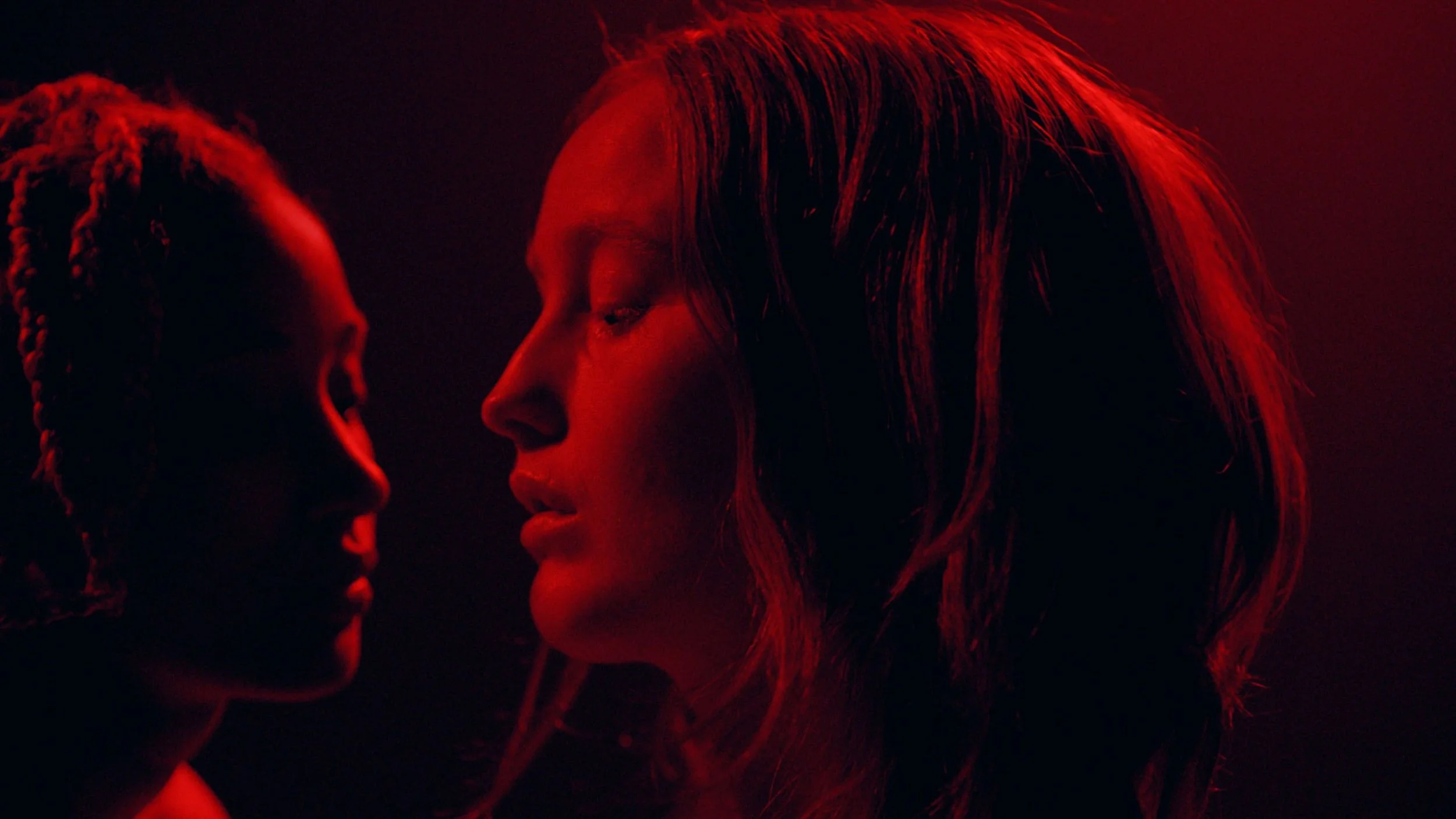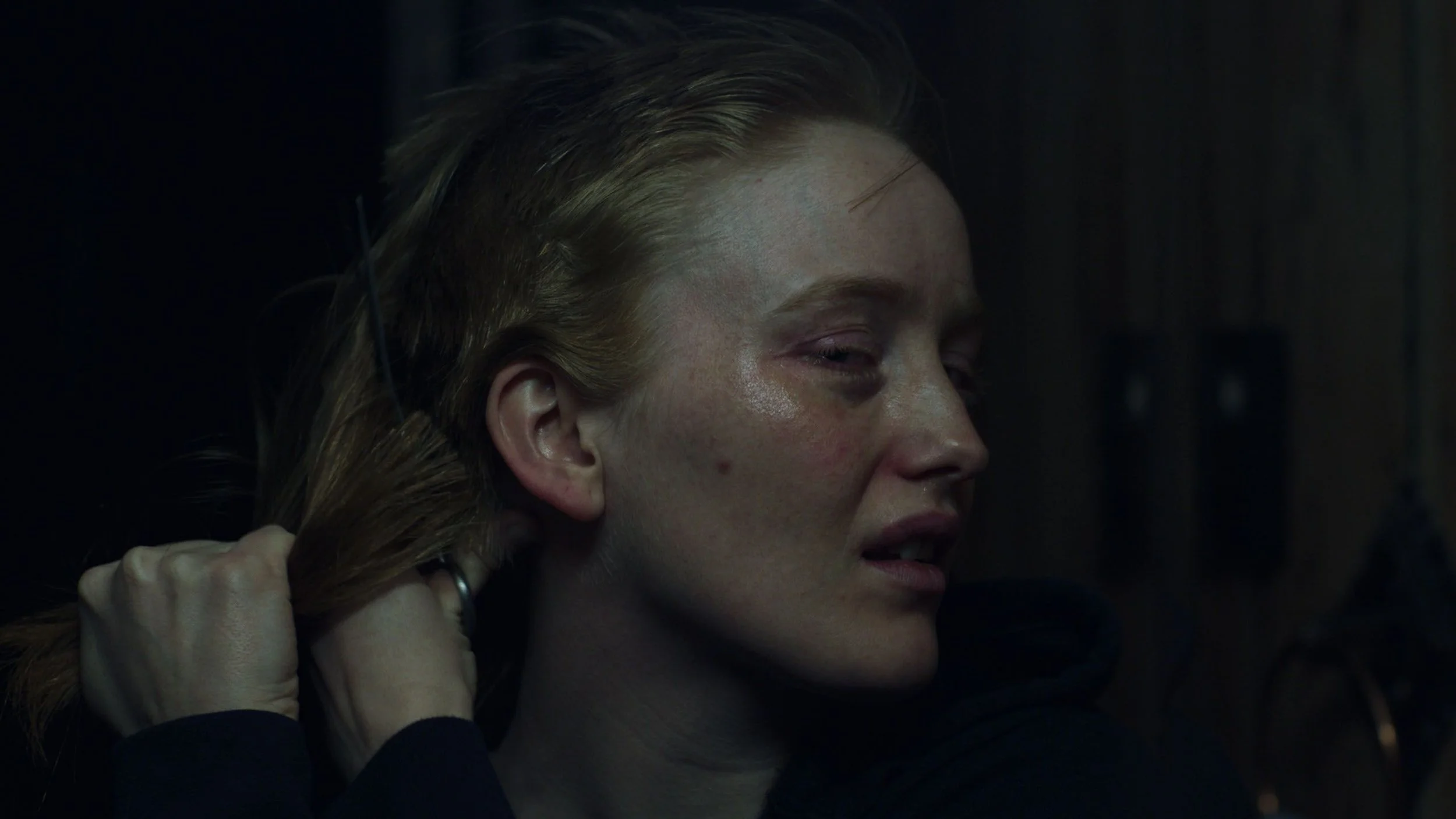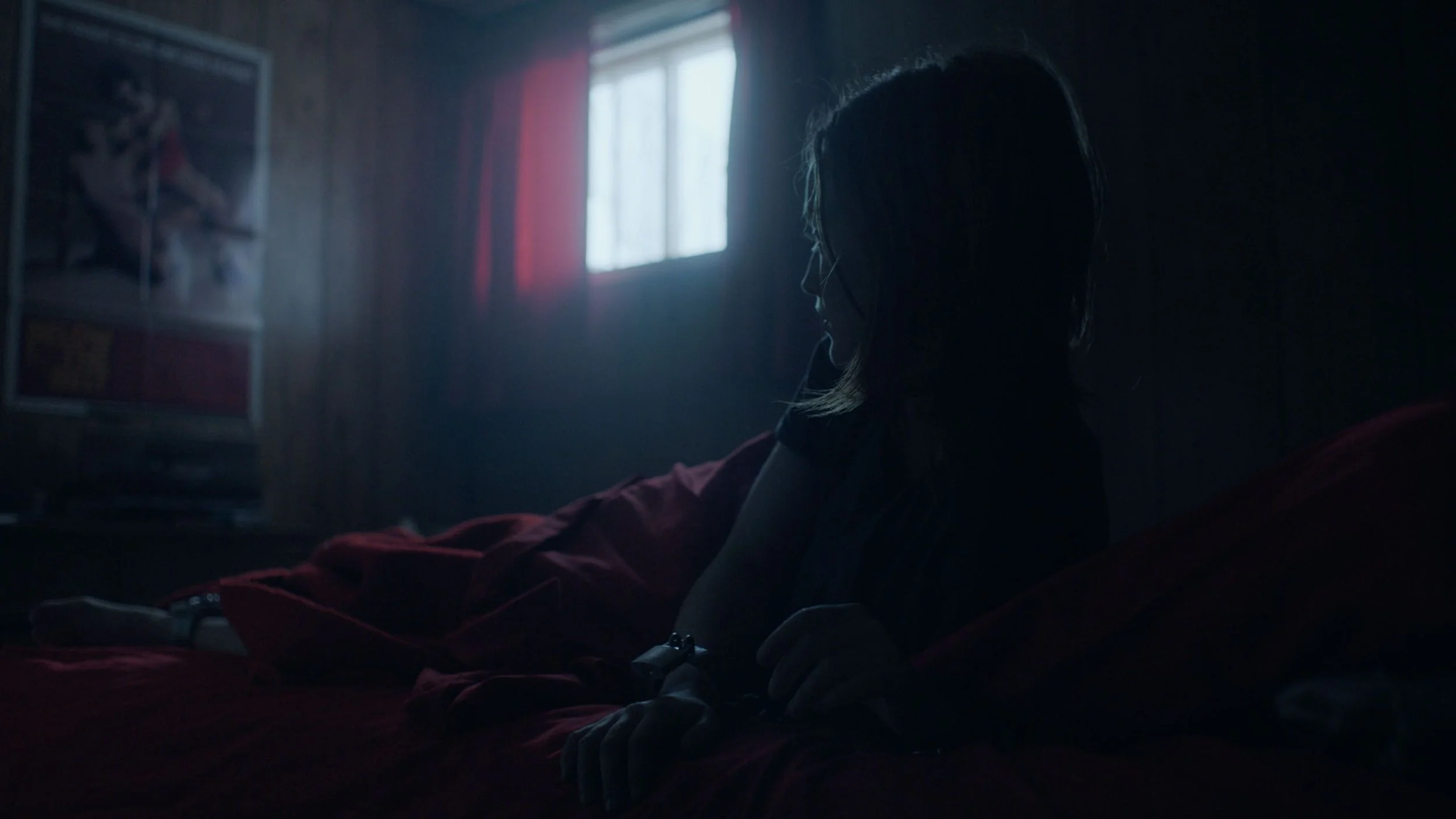[Sundance 2023 Review] "My Animal" is a Queer Werewolf Coming of Age Story Missing its Bite
My Animal takes us back to an ambiguous decade, probably the very late 80s or early 90s, a difficult time in queer history…particularly in more rural areas. The score by Boy Harsher’s Augustus Muller immediately takes us back, with its The Thing-inspired synth mixed with an edge of industrial darkness. It gives My Animal a propulsive beat that, unfortunately, the script by Boy Harsher’s Jae Matthews can’t quite match.
The cold open introduces the problem at the heart of the narrative: Heather (Bobbi Salvör Menuez) is a werewolf, a condition passed down by her father Henry (Stephen McHattie). We’re introduced to her during a full moon as she slowly transforms, her eyes glowing in a way reminiscent of the vampires in Salem’s Lot. After this brisk introduction, we formally meet Heather’s family, including her two twin brothers and her mother Patti (Heidi von Palleske) some point after. Patti is a drunk, passed out on the couch but we can see the scars she has, presumably from Heather. Their relationship is strained. Patti is kind and patient with the twins, but when they’re gone, she gives Heather a withering look and tells her to go get her cigarettes from the store.
It’s at the grocery store when Heather meets Jonny (Amandla Stenberg), a young woman who immediately captures Heather’s attention. But the meet cute is quickly ended as Jonny hops into the truck of her aggro boyfriend Rick (Cory Lipman) and takes off. The next day, Heather sees Jonny at the ice skating rink. While Heather desperately wants to get on the male-only hockey team, Jonny is a figure skater with an unbearably militant and queer-coded father (Scott Thompson). After Jonny messes up the routine, her father leaves her at the rink and she starts up a conversation with Heather.
One thing leads to another and Heather joins Jonny and her friends on a ride and at a casino…but unfortunately it’s the full moon and Heather, being belligerent after her mother calls her a queer slur, stays out a little too late. “You don’t get to fuck up,” her father angrily tells her at one point when her attraction to Jonny keeps her out too late. And what follows is exactly that: a story about a queer werewolf trying to make it in a world that hates her.
My Animal is an indie coming-of-age story about a young woman in a rural part of the country attempting to follow her passion in a male-dominated sport while trying to find love in a straight-dominated world. It’s a queer story dropped in the middle of a werewolf film that adds stronger thematic weight to the outcast/outsider fiction we typically see of queer first love. Jonny and Heather share intimate moments, but Jonny seems more afraid to be seen as different and her boyfriend Rick certainly acts the straight bro part. It’s Boys Don’t Cry by way of Ginger Snaps, except that script doesn’t completely come together to really sell the stakes. It’s a similar problem I had with Teddy, another werewolf film that mixed outcast with werewolf.
The werewolf is a fantastic metaphor for dealing with inner trauma, as the thing we wish to suppress is constantly trying to get out. Unfortunately, it’s also well-worn territory and a narrative needs a bit more oomph to really say anything new here. Contrasting queerness with lycanthropy is intriguing, but My Animal never pulls everything together satisfactorily. The most intriguing element of the narrative was the fraught relationship between Heather and her mother, who could be caring and kind but then turn around and become a raging monster. They wearily circle each other, perfect character foils, where you could simultaneously feel anger and sadness for Patti, the lone person in a family of werewolves. Unfortunately, character beats and narrative beats unfold as you’d expect, with foreshadowing moments clearly laying out the story and sapping it of its surprises. It also ends somewhat abruptly; this horror fiend wanted a bit more to the climactic moment.
What did command my attention, though, was the star-making performance by Bobbi Salvör Menuez and the staging and direction by Jacqueline Castel. Castel embraces the winter’s chill and, with cinematographer Bryn McCashin, coolly captures the drama with a somewhat detached eye. It lays out the visual story coldly and calmly, saving its more showy moments for the transformation sequences and sexual dreams. Bobbi’s performance, meanwhile, brought me back to that scared kid, also surrounded by snow and homophobia, who hid his own sexuality from the world. A sense of longing and melancholy percolate throughout, it’s just a shame the script couldn’t match the same intensity.


![[Sundance 2023 Review] "My Animal" is a Queer Werewolf Coming of Age Story Missing its Bite](https://images.squarespace-cdn.com/content/v1/5b39608d75f9eef54c62c3f0/1674443675829-HPPGNJ54DIVBMDZ46IST/GXkpWu9Q.jpeg)



![[Sundance 2023 Review] 'Polite Society' is Effortlessly Charming Thanks to Priya Kansara](https://images.squarespace-cdn.com/content/v1/5b39608d75f9eef54c62c3f0/1675959552797-FK6ZAEV2R40ARTM7I81Q/2GQLk3XU.jpeg)
![[Servant S4E2 Recap with Joe Lipsett] "Itch" Ratchets Up the Tension with Invasive Bugs and Humans](https://images.squarespace-cdn.com/content/v1/5b39608d75f9eef54c62c3f0/1674155771889-TQVOY4JCPTK6QLPG7QEU/Servant_Photo_040206.jpg)
![[Sundance 2021 Review] Eight For Silver is Almost a Great Werewolf Film](https://images.squarespace-cdn.com/content/v1/5b39608d75f9eef54c62c3f0/1612376333871-TQ0S912RIC4UDLGDDH4B/eight-for-silver---still-1_50676368772_o.jpg)
![[Sundance 2023 Review] 'Aliens Abducted My Parents and Now I Feel Kinda Left Out' is a Goofy, Somewhat Heart Felt Kids Movie](https://images.squarespace-cdn.com/content/v1/5b39608d75f9eef54c62c3f0/1674938266371-VTLCPRWYPYI4MOQGLZUM/04cOchNA.jpeg)
![[Sundance 2023 Review] 'Talk to Me' is a Wild and Vicious Rollercoaster Almost Derailed by its Script](https://images.squarespace-cdn.com/content/v1/5b39608d75f9eef54c62c3f0/1675962512977-FKVJWDWPKHTY3WG54W85/JYz-YYvw.jpeg)